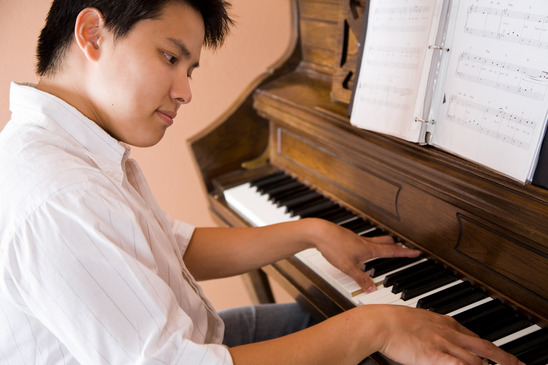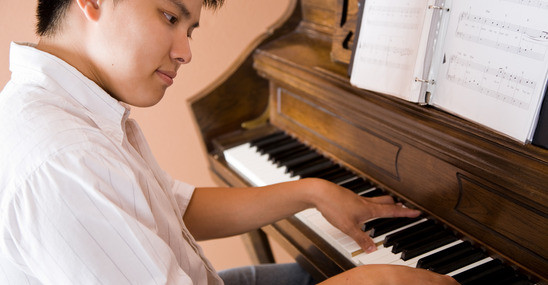Plato said it best:
“Music is a moral law. It gives soul to the universe, wings to the mind, flight to the imagination, and charm and gaiety to life and to everything.”
What would the world be like without music?
Luckily, we can easily bring music into our lives at any point in time. And no matter how young or old you are, there are many benefits to learning how to play the piano at any age.
Increases your memory capacity – research continually shows that learning to play an instrument changes both the shape and the power of the brain. Music is being used in therapy to improve cognitive skills. And and motor skills in children from a very young age.
Refines time management and organizational skills – good practicing skills won’t just make you a better piano player, they’ll make you a more organized person as well. A good musician quickly picks up that quality practice is more valuable than quantity. And by organizing and using different challenges in each session, music talent can increase rapidly.
Boosts team skills – playing the piano isn’t an individual activity, it can be used in many ways. Lessons are important to give more skills to an individual – how to interact with an instructor and take advice, how to join in with others to create harmony and melody, and how to be both active and a participant in the music playing process.
Betters your math skills – reading music requires counting notes and rhythms, which helps put math skills together in your brain. Studies continually show that students that play an instrument are better prepared in math and achieve higher grades overall.
Improves reading and comprehension – while reading music helps you become better at math, it also helps your reading and comprehension skills. Reading music involves reading and comprehension of both the black and white notes on a page, recognizing the note, translating it to your finger tips in order to create the note on the piano.
Improves your concentration – playing a piece of music requires you to focus on things like pitch, rhythm, tempo, notes, and quality of sound. You must concentrate not only what you’re playing and the sound you are producing, but also be able to listen to all other sounds around you in order to play in harmony with the rest of the group.
It relieves stress – a piano is there for you to play any time you choose. You can play any type of music, and play it with any kind of emotion you choose. It’s a great way of relieving stress, and has been used in all kinds of therapies in treating autism, depression and other cognitive disorders.


